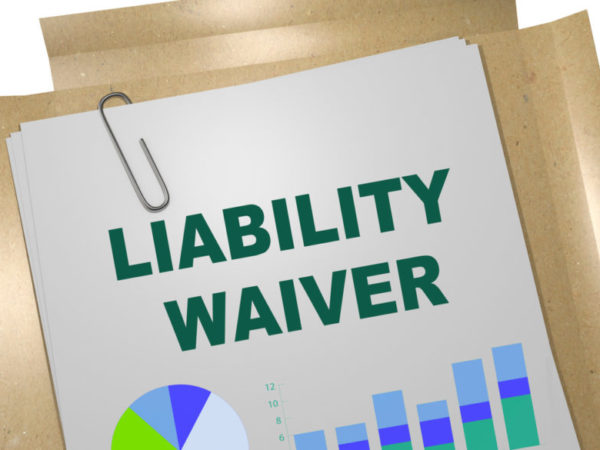
An Introduction to Mediation: Alternative Dispute Resolution Where Parties Control Their Own Destiny
It is impossible to get through litigation without mediation; indeed, a conscientious lawyer won’t even get through his initial consultation with a client without mentioning mediation. This is no coincidence, as the vast majority of civil cases are settled before trial and a significant percentage of those settlements occur at mediation. So what is mediation, why is it so successful, and what does it have to do with adversarial litigation?
Mediation is a structured discussion between the parties to a dispute (notice the use of “dispute,” as opposed to “lawsuit;” suit does not need to be filed for mediation to be available and worthwhile). The structure is imposed by a neutral third party: the mediator, who is typically selected by the parties’ agreement.
Mediation has distinct stages, beginning with the “general session,” where all the parties and their counsel (if they have counsel) meet face to face to present their view of the dispute and indicate how they believe it should be resolved. This is a rare chance for the attorneys to directly address the parties on the other side and discuss the weaknesses in their case, without going through the filter of opposing counsel (who may not have alerted his client about such weaknesses).
Following the general session, the parties will separate to “caucus” in separate rooms and meet with the mediator privately. In caucus, the mediator will discuss the parties’ current position and help each party better understand the other’s desired outcome with the goal of helping the parties strike an agreement to resolve the dispute. Often mediators will take a “devil’s advocate” approach and challenge each side to consider the risks of taking the case to trial. When the parties reach agreement, the mediator will typically provide a form to help the parties commit their bargain to writing.
What is said during the mediation is confidential and what is said to the mediator in caucus will not be shared with the other party unless the mediator is authorized to do so. The mediator cannot be compelled to testify regarding what occurred at mediation. Mediation is an opportunity for the parties to discuss the dispute with a neutral third party and, crucially, with each other without any concern that what is said will affect the course of the dispute if agreement is not reached.
Mediation is so successful because it permits the parties to take control over the dispute’s resolution. At the outset of a dispute, this can seem counter-intuitive: after all, how can compromising with the other party, in effect letting them take part in the resolution, give you more control over the outcome? Thinking forward over the dispute’s likely course provides the answer. Unless you can resolve the dispute unilaterally without simply walking away from it, there will be at least one other person deciding the matter with or without your input (and even then, mediation can be worthwhile to preserve a relationship with the other party). Who would resolve the dispute without your input? A judge or a jury who may or may not make the “correct” decision from a party’s perspective. While not all disputes lead to litigation or indeed are susceptible to it, you’re reading this on a law firm’s blog: what did you expect?
While compromise at the outset of litigation might seem impossible (otherwise why would you be consulting with a lawyer?), after months of stress and attorney’s fees it becomes much more reasonable. I find that my clients are unable to fully appreciate the costs, both economic and emotional, occasioned by a lawsuit until they have experienced the crucible of litigation. Additionally, at the outset of a lawsuit, the final judgment may be years away (and may even go up on appeal, which may take years more) – it is difficult for any person to fully account for a matter so far in the future. Compounding the costs, as litigation proceeds it is typical for the parties to have a growing awareness that at some point the matter will be decided by a third party. This awareness is difficult to achieve before a contested issue arises in the case, the issue is submitted to the court, and the judge resolves the matter. This resolution (even if it is favorable) makes abundantly clear that while I’m zealously advocating for my client, their fate in the judge’s power.
Once the parties realize that the case’s resolution is out of their hands, they quickly apprehend how settlement helps them reclaim control. Compromise between the parties is inherently under their joint direction. Unlike a judgment, the parties are able to specify the terms acceptable to them and are free to walk away from undesirable outcomes. The end result is an outcome created and adopted by both parties.
Another key benefit to mediation is that it permits the parties to creatively resolve the case. A judgment brooks few remedies other than monetary damages. Even judgments that prohibit or direct a party to perform specific actions are ultimately enforced through economic penalties. At the end of the day judges can only compel parties to pay money or face incarceration, the latter being a very seldom-used tool in civil litigation. While these limitations define the normal bounds for mediated settlements (sometimes only because the parties cannot move outside the litigation paradigm or because they are the easiest way to effect the agreement), they are not the only way to resolve matters. For example, in a dispute over construction defects the parties may agree to repairs in lieu of, or in addition to, paying money to resolve the case. In a foreclosure, the lender may agree to modify the terms of the note and help the debtor remove negative credit references instead of paying “cash for keys.” Finally, in an employment dispute, the employer may agree to provide positive references in addition to a severance package to an employee who claimed to be wrongfully terminated. In all these examples, when the parties agree on the outcome, resolutions that require their active participation are possible – including remedies beyond the power of a court.
Of course, mediation is not always successful and some disputes can only be resolved by combat in trial and judgment. However, at Rogers & Elliott, LLC we consider it an essential tool in ensuring our clients are satisfied with the outcome of their case. If, after mediating, they proceed towards a judicial resolution they will do so based on a clear understanding that their desired outcome is worth the risk inherent in trial.
Beyond offering our expertise in helping clients reach mediated settlements, Rogers & Elliott is available to mediate all civil (non-family) disputes. Please contact us for pricing and availability.


